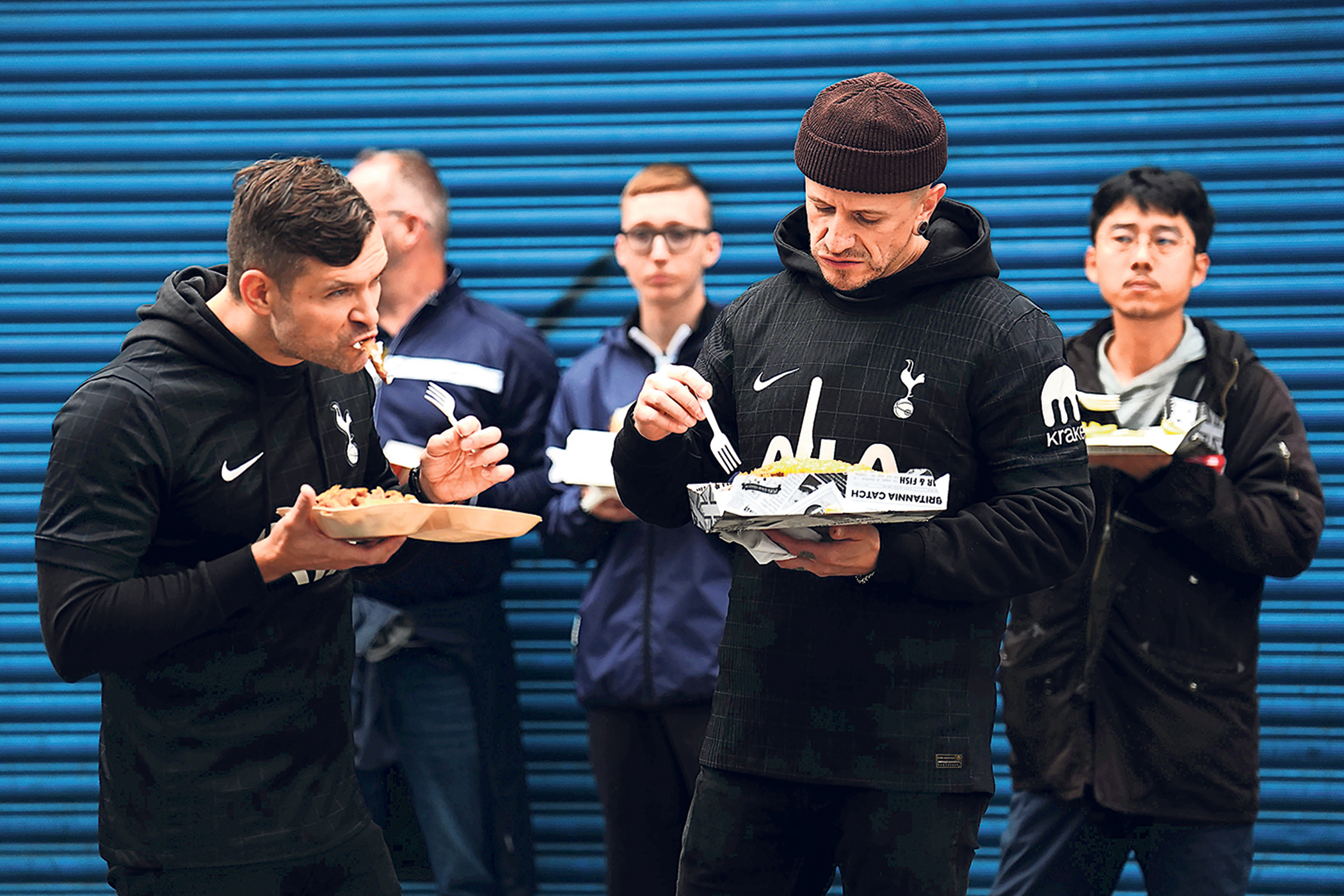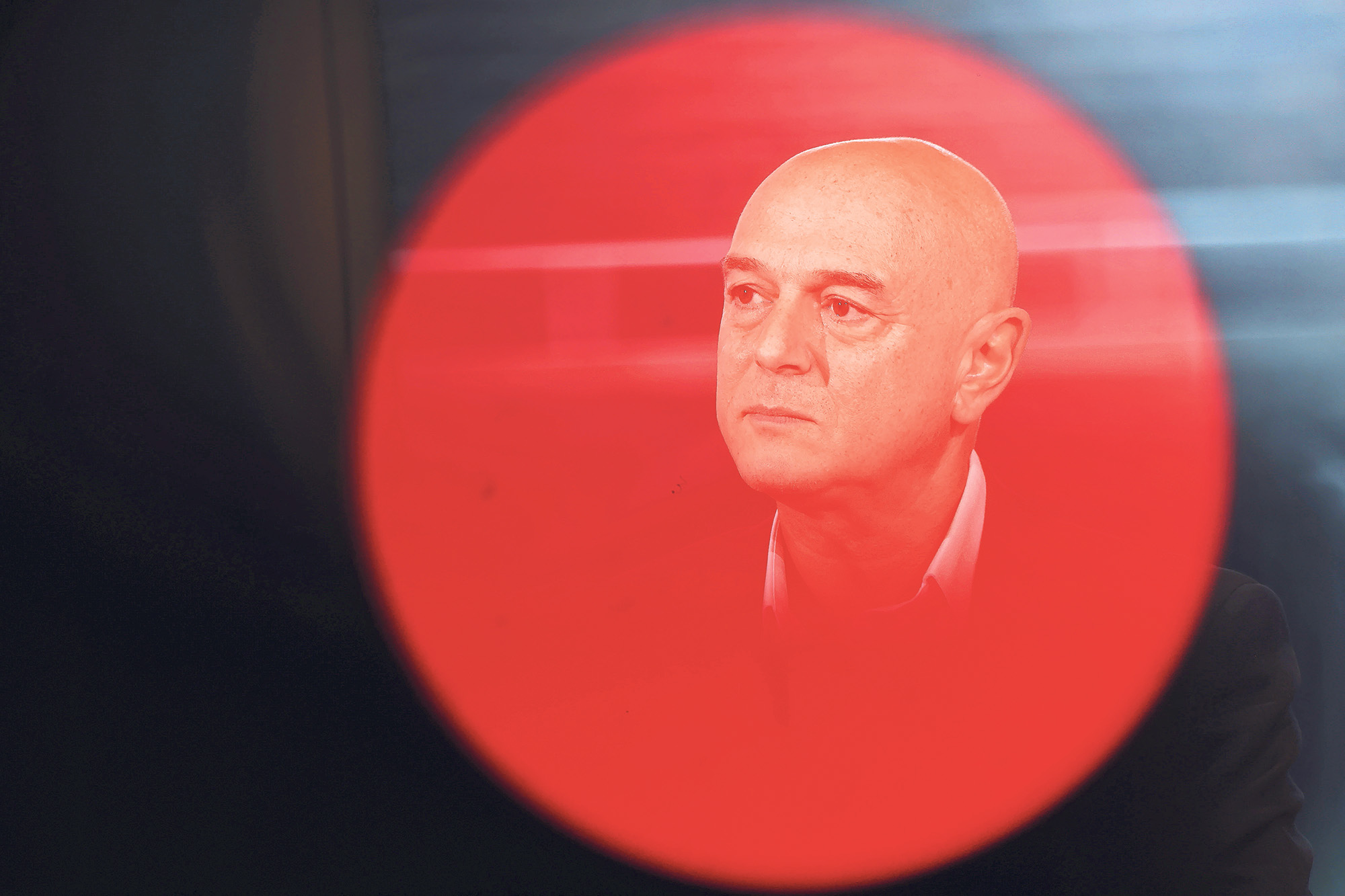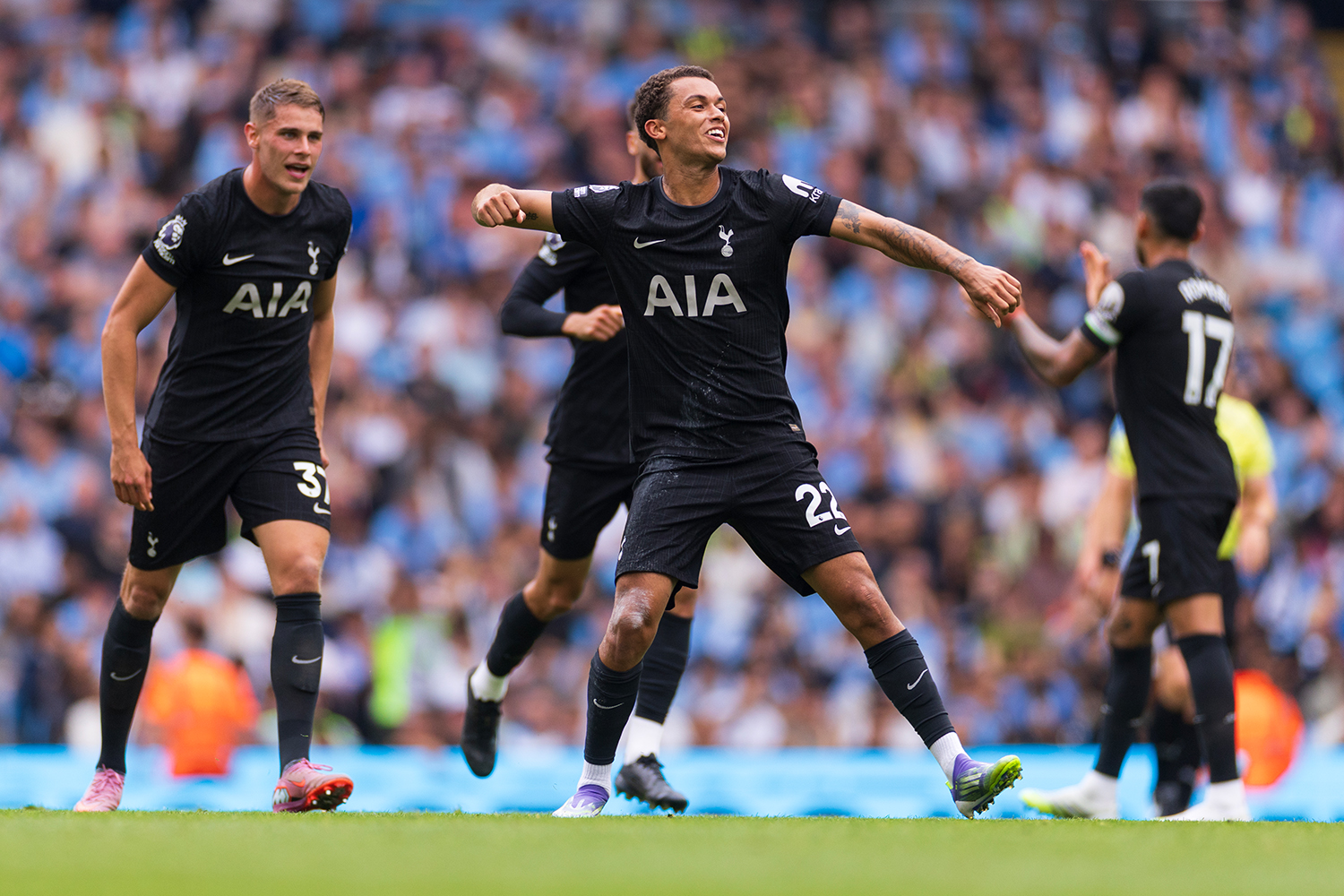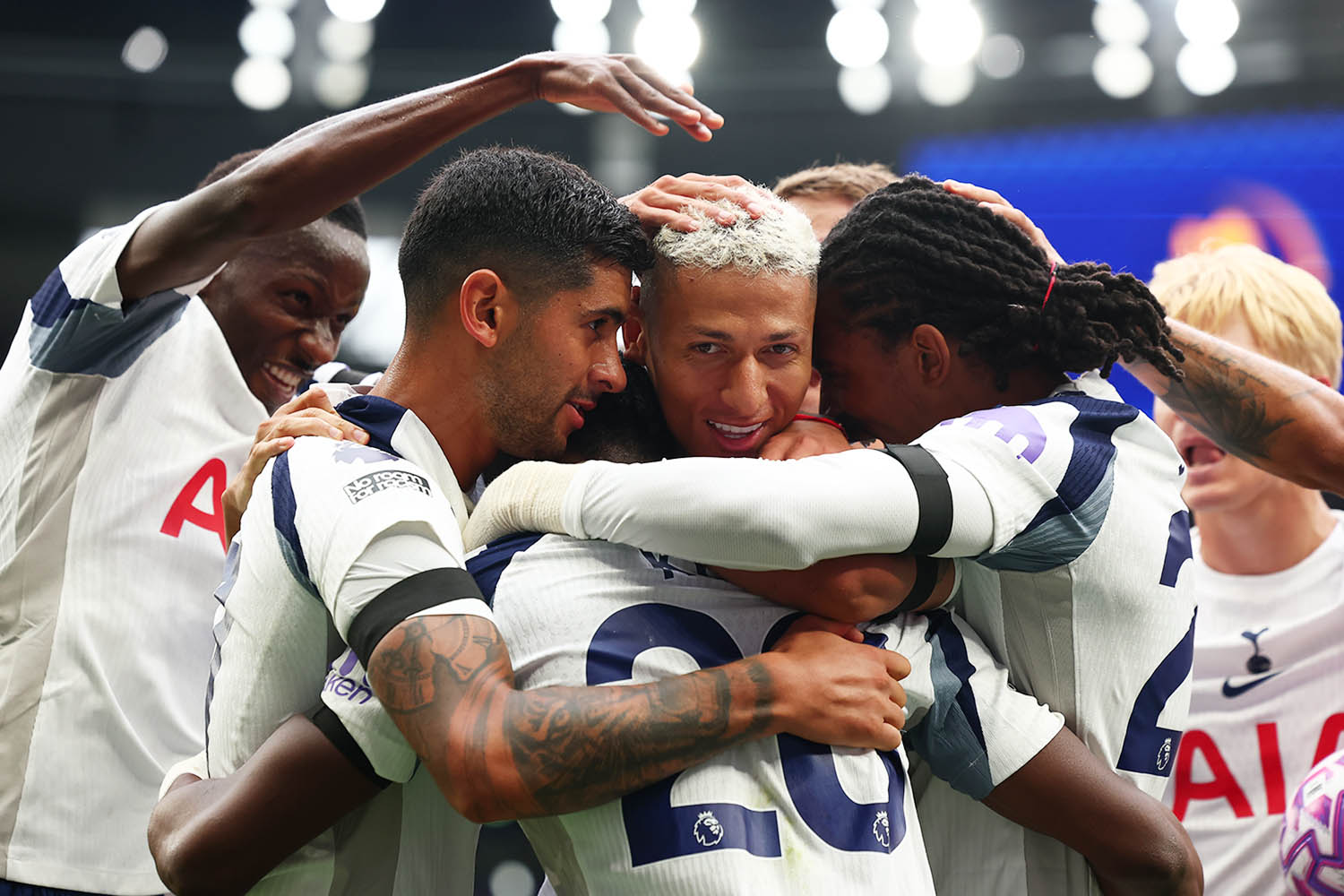The audit: Tottenham Hotspur

On-pitch performance
Thomas Frankâs arrival brought a warm brand of intelligence after Âdecades of manager churn. Expectation has dimmed with unconvincing performances against Aston Villa and Monaco but a relatable head coach is what Spurs needed. Three home wins from 17 Premier League fixtures since November is an anomaly that needs rectifying.
Under a new leadership group of Cristian Romero, Guglielmo Vicario, Ben Davies, Micky van de Ven and James Maddison, Frank has blended long throws and other Âtheories from his Brentford days into a solid Â4-2-3-1 that lacks a splash of creativity. The new star is Mohammed Kudus, who is ahead of Kylian Mbappé and Lamine Yamal on dribbles attempted and completed. Kudus is an early contender for signing of the season.
Newsletters
Sign up to hear the latest from The Observer
Every Weekday
Daily Sensemaker
Clear, calm analysis on the stories driving the dayâs news
Every Weekday
The Observer Daily
The very best of our journalism, reviews and ideas â curated each day
Weekly
Food Weekly
A dispatch from The Observerâs kitchen table â from Nigel Slaterâs recipes to interviews, features and hot tips
For information about how The Observer protects your data, read our Privacy Policy.
Other strengths include outstanding centre-backs (Romero and Van de Ven), an accomplished crosser at right-back (Pedro Porro) and a commanding Noâ6 (João Palhinha). Centre-forward is a weakness. Dominic Solankeâs ankle injury has exposed Richarlisonâs inconsistency. Maddison and Dejan Kulusevski are also injured and much missed.
After 17 years without a trophy, Mayâs Europa League win bought a respite from the old Spursiness and raised self-esteem. But it barely disguised a dreadful league placing of 17th, with 22 defeats in 38.
History
Six Champions League campaigns in 10 seasons is a respectable return for a team built for a top-four finish, but not to be regular title contenders.
Last season aside, they are where data crunchers would expect them to be. The âglory gameâ, however, calls for more. If âheritageâ still matters, fans can be comforted by the Bill Nicholson Gates and the Harry Kane and Ledley King murals. Spurs last won the FA Cup in 1991, the League Cup in 2008 and the title in 1961.
Money talks
If the party line is believable, the Europa League win was an epiphany, jolting the club away from Daniel Levyâs prudence to pleasure seeking.
âThe ambition of the Lewis family is really clear,â says Vinai Venkatesham, the chief executive and Levyâs de facto replacement after he was eased out in September. âThey want us to be focused on Âdriving success on the pitch. They want us to have more nights like the one in Bilbao.â
In the glow of a European conquest the [Joe] Lewis family handed more than £100m of extra funding via 13.5 million new shares in Tottenham Hotspur Limited. A net spend of £154m in this summerâs transfer window was the leagueâs fourth highest.
Spurs are ninth in the worldwide revenue league (Deloitte) but have the most restrained wage inflation of the top six Premier League clubs â a reflection of Levyâs parsimony.
Fan satisfaction
âLevy outâ is in the bin of angry chants. Now Tottenham supporters marvel at the clubâs urge to communicate. Venkatesham is an enthusiastic club channel interviewee and joint-sporting directors recently took to the in-house couch to explain their roles.
Fabio Paratici, back after a 30-month Fifa ban for financial irregularities, says his skills are âplayers, managing players, transfer window, loans and pathwaysâ, while Johan Lange will concentrate on scouting, football insights, performance and the academy. Modern fans devour this kind of detail. With Levy out, Tottenhamâs Âfollowers are mostly Âoptimistic the club will âcompeteâ, that Âamorphous hope. Nostalgia still soothes the soul â less so with younger fans, who want gratification now. From the Double winners of 1961 through Ossie Ardiles, Glenn Hoddle and Paul Gascoigne and on to Harry Kane, retrospection was a defence against disappointment and sometimes ridicule.
Products and prospects
An academy that formed Graeme Souness, Hoddle, Peter Crouch, Nick Barmby, Sol Campbell, Ledley King and Kane isnât prolific these days in sending graduates to the first team.
Paratici, Lange and new performance director, Dan Lewindon will be expected to improve the supply chain from youth to senior levels. No home-grown players started the Villa or Monaco games. Harry Winks (10 England caps) was the most recent hyped starlet but now plays in the Championship at Leicester.
Mikey Moore (on loan at Rangers), Luka VuÅ¡koviÄ (loan to Hamburg), Alfie Devine (Preston), Luca Williams-Barnet, Tynan Thompson and 16-year-old Junâai Byfield are among the most promising prospects.
Ownership
Enic sounds like a privatised energy firm but is one of the more colourful corporate monoliths.
Its 88-year-old overlord, Joe Lewis, born above an East End pub, owns works by Picasso and Matisse and a $250m yacht. In January last year, he pleaded guilty in the US to insider trading after sharing share information with his pilots and ex-girlfriend.
The contrast between Lewisâs tycoon lifestyle and his tight hold on Tottenhamâs budgets has long frustrated fans. But nobody could accuse Enic, a âBahamas-based investment groupâ, of not building up its asset. It owns 85% of the clubâs share capital, and is in turned owned by the Lewis family (70%) and the Levy family (30%). Officially the club, worth about £4bn, is ânot for saleâ but Lewis and Levy are nicely placed. Three reported overtures went nowhere: from PCP International Finance Limited, a consortium called Firehawk Holdings and the American Brooklyn Earick.
Womenâs team
Yet to finish in the top three after six years in the Womenâs Super League, Tottenham women are showing flashes of promise under new manager Martin Ho, after nine months without a victory. Four wins from six this season is an auspicious start.
They play at Leyton Orientâs Brisbane Road (capacity: 9,271) but at least three WSL games will be held at the main stadium: Chelsea (8 Feb), Everton (15 March) and Manchester United (26 April). A designated new training ground is planned next to the main Enfield complex.
Ho says of the clubâs owners: âWe are well supported. They are doing everything they can to make sure we grow ⦠they have some really ambitious plans for this team.â
The clubâs facilities
Here at least they are undisputed champs. Other clubs squirmed with envy when they saw the Enfield training complex. The £1bn stadium (62,850) adjacent to the old White Hart Lane site feels like an NFL arena transplanted to N17 â but without the good transport infrastructure. The NFL logo next to the Spurs one on the stadium supports the analogy. Two more American football games were staged there this autumn.
Opened in 2019, the ground is designed to be vertiginous and lifestyle-y, with Europeâs longest bar, a retractable playing surface and much sustainability cred.
Atmosphere
The 17,500-seat South Stand beneath a giant golden cockerel was conceived as a wall of noise, modelled on Borussia Dortmundâs, but the mood can be subdued when the entertainment level dips, which is true these days of most big grounds.
But a chant not heard since the Uefa Cup win of 1984 has returned: âChampions of Europeâ. The victorious manager, Postecoglou, has since been sacked twice in 135 days.


